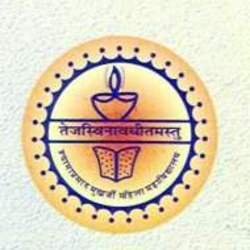MASTER OF SCIENCE [M.SC]
2 Years
Course Name:
M.Sc. (Master of Science)
College:
Shyama Prasad Mukherjee College
University of Delhi
Duration:
2 Years (4 Semesters)
Mode:
Full-time (Regular Day Classes)
Eligibility Criteria:
-
Bachelor's Degree: Applicants must have completed a B.Sc. (Hons.) or B.Sc. Programme degree in a relevant science discipline from a recognized university.
-
Minimum Marks: Generally, students need to have 50-60% aggregate marks in their undergraduate degree, though the specific requirements may vary based on the chosen subject and category.
-
Admission Mode: Admissions are typically based on merit or through CUET (Common University Entrance Test), as per the University of Delhi’s guidelines.
Subjects Offered for M.Sc. (Depending on the Specialization):
Shyama Prasad Mukherjee College offers the M.Sc. program in various scientific disciplines. The exact specializations offered may depend on the college's faculty and resources. Some common specializations include:
-
M.Sc. in Physics
-
M.Sc. in Chemistry
-
M.Sc. in Mathematics
-
M.Sc. in Environmental Science
-
M.Sc. in Botany
-
M.Sc. in Zoology
Course Structure (CBCS):
The M.Sc. program follows the Choice Based Credit System (CBCS), which allows students flexibility in choosing elective courses and customizing their study path based on their interests and career goals.
Core Courses (CC):
Each specialization has core courses that provide deep knowledge of the subject. For example:
-
M.Sc. in Physics:
-
Classical Mechanics
-
Quantum Mechanics
-
Electrodynamics
-
Statistical Mechanics
-
Condensed Matter Physics
-
-
M.Sc. in Chemistry:
-
Inorganic Chemistry
-
Organic Chemistry
-
Physical Chemistry
-
Analytical Chemistry
-
Biochemistry
-
-
M.Sc. in Mathematics:
-
Real Analysis
-
Abstract Algebra
-
Mathematical Methods
-
Linear Algebra
-
Probability and Statistics
-
-
M.Sc. in Environmental Science:
-
Environmental Chemistry
-
Environmental Microbiology
-
Geographical Information Systems (GIS)
-
Environmental Management
-
Environmental Policy and Legislation
-
-
M.Sc. in Botany:
-
Plant Physiology
-
Plant Ecology
-
Plant Biotechnology
-
Genetics and Evolution
-
Plant Systematics
-
-
M.Sc. in Zoology:
-
Animal Physiology
-
Biochemistry
-
Genetics
-
Ecology and Evolution
-
Developmental Biology
-
Discipline-Specific Electives (DSE):
These elective courses allow students to specialize further in certain areas of their chosen subject. For example:
-
M.Sc. in Physics:
-
Nuclear Physics
-
Astrophysics
-
Solid State Physics
-
Laser Physics
-
-
M.Sc. in Chemistry:
-
Green Chemistry
-
Medicinal Chemistry
-
Supramolecular Chemistry
-
Computational Chemistry
-
-
M.Sc. in Mathematics:
-
Complex Analysis
-
Functional Analysis
-
Mathematical Biology
-
Fluid Dynamics
-
-
M.Sc. in Environmental Science:
-
Climate Change
-
Environmental Toxicology
-
Waste Management
-
Environmental Economics
-
Generic Electives (GE):
These electives are chosen from other departments, allowing students to broaden their knowledge and enhance their interdisciplinary learning. For example:
-
M.Sc. in Environmental Science:
-
Remote Sensing
-
Environmental Education
-
Water Quality Management
-
-
M.Sc. in Zoology:
-
Entomology
-
Fisheries Biology
-
Conservation Biology
-
Skill Enhancement Courses (SEC):
Skill-based courses to help students acquire practical and technical skills that are relevant to their field of study:
-
M.Sc. in Physics:
-
Laboratory Skills
-
Computational Physics
-
Instrumentation Techniques
-
-
M.Sc. in Chemistry:
-
Spectroscopy
-
Instrumental Analysis
-
Environmental Monitoring Techniques
-
Ability Enhancement Compulsory Courses (AECC):
These mandatory courses focus on developing general awareness and communication skills:
-
English Communication
-
Environmental Studies
Why Choose M.Sc. at Shyama Prasad Mukherjee College?
-
Specialized Knowledge: The M.Sc. program offers deep knowledge in scientific subjects, ideal for students aiming to specialize in a particular branch of science.
-
Research Focus: The program provides strong emphasis on research, allowing students to engage in academic research and hands-on laboratory work.
-
Experienced Faculty: The college offers highly qualified and experienced faculty, providing expert guidance and support throughout the program.
-
State-of-the-Art Laboratories: The college is equipped with modern laboratories and facilities for practical learning and research in various scientific fields.
-
Holistic Development: Students are encouraged to take part in extracurricular activities, including workshops, conferences, and seminars, to foster skills beyond academics.
-
Placement Assistance: The college has a placement cell that helps students with internship opportunities and job placements in scientific industries, research organizations, and academia.
-
Affordable Education: As part of the University of Delhi, students receive high-quality education at a relatively affordable cost compared to private institutions.
Career Opportunities After M.Sc.:
Graduates of the M.Sc. program can pursue a wide range of career opportunities in both public and private sectors. Some of the potential career paths include:
1. Research and Development:
-
Research Scientist (in government or private research labs)
-
Lab Technician
-
Biotech Researcher
-
Pharmaceutical Researcher
-
Environmental Consultant
-
Clinical Research Associate
2. Teaching & Academia:
-
Lecturer/Professor (with a Ph.D. after further studies)
-
School/College Teacher (after B.Ed)
-
Research Scholar
3. Government Jobs:
-
Indian Administrative Service (IAS)
-
Environmental Officer (in government agencies)
-
Scientific Officer (in institutions like ISRO, DRDO, CSIR)
-
Forest Officer
-
Public Health Analyst
4. Private Sector Jobs:
-
Biotech Companies
-
Pharmaceutical Industry (R&D, Quality Control, Drug Development)
-
Environmental Consultancy Firms
-
Energy and Utility Companies
-
Food and Agriculture Industry
5. Further Studies:
-
Ph.D. (in the respective subject for those interested in research and academia)
-
M.Tech (in fields like Biotech, Environmental Engineering, etc.)
-
MBA (for those interested in management roles)
Key Features of the M.Sc. Program at Shyama Prasad Mukherjee College:
-
Comprehensive Learning: Offers both theoretical knowledge and practical skills, preparing students for careers in academia, research, or industry.
-
Focus on Research: Strong emphasis on research, with opportunities to work on projects and dissertations.
-
Well-Equipped Facilities: Access to modern laboratories and research facilities, supporting advanced practical learning.
-
Highly Experienced Faculty: Faculty with expertise in their respective fields guide students in their academic and research journeys.
-
Placement and Internship Opportunities: The college provides career counseling, internships, and placement support to help students transition smoothly to the workforce.






 OMAWATI686b96fcc7a5c.jpg)